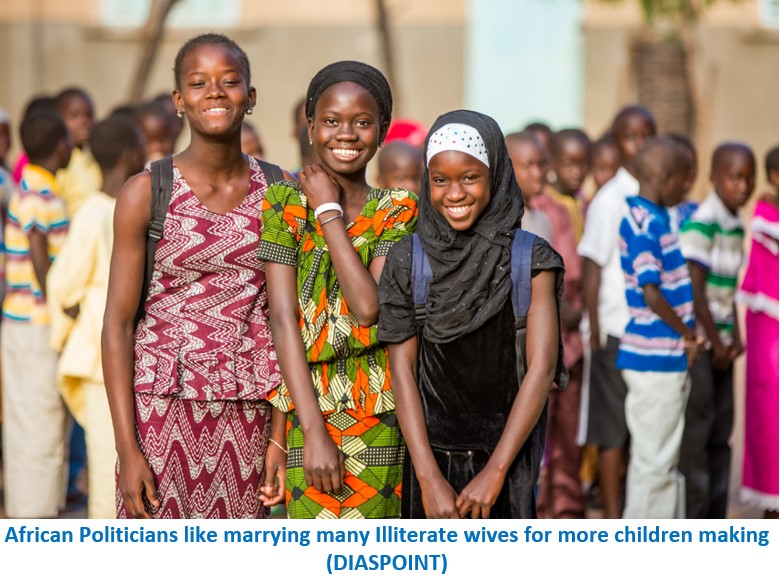Only one in three girls makes it to secondary school in Senegal: Here’s why and how to fix it
Post By Diaspoint | April 16, 2023

Senegal has a young population, with about half of its 18 million people aged below 19. This indicates a potentially high demand for education. Of those aged six to 11, however, 41% are out of school. In the age group 12 to 18, 43% aren’t in school. Statistics show, too, that the enrollment numbers of girls decrease as they advance in grades. To understand these dynamics, the African Population and Health Research Center carried out a two-year study on girls’ education and well-being in Senegal. The Conversation Africa asked Benta A. Abuya, a lead researcher on the study, to unpack the findings.
You found that only a third of girls enroll in a secondary school. Why is this?
The reasons begin in primary school. In Senegal, the official primary school entrance age is six. Primary school lasts six years, lower secondary lasts four years and upper secondary lasts three years.
Our findings were that in the last grade of primary school, the dropout rate was 26.7% for girls and 22.2% for boys.
We found that financial hardship in households is one of the obstacles to girls and boys completing school. About 39% of Senegalese live below the poverty line.
Despite the existence of government programs—like free public school education until age 16 and the Girls’ Education Support Project, which provides school uniforms—the cost of schooling is still an obstacle for many families. They have to pay for learning materials and transport to school.
We also found a preference to educate boys over girls. In households with limited finances, boys are more likely to be sent to school even if girls would like to go.
Additionally, girls who are delinquent, lack interest in school or engage in unsafe sexual activities tend to be judged harshly by communities. They are viewed as bringing shame to their families. They are, therefore, withdrawn from school and married off early in an attempt to address this behavior.
Deep-seated cultural beliefs and practices—such as female genital mutilation, forced child marriages and early pregnancies—also prevent some girls from making progress in school. They, therefore, lag in education and well-being.
The legal age of marriage in Senegal is 16 for girls and 18 for boys. But families decide when girls get married. For example, in the Kolda region in the south, 68% of girls get married before they turn 18. This is more than double the national average of 31%.
In a scoping review we did in 2019, we found that out of 1,321 adolescent girls, 78% got pregnant between ages 12 and 18. Of these pregnancies, 25.6% occurred before the girls turned 15. And in an exploratory study we did in 2021, teenage pregnancy was predominantly cited in Zinguinchor and Sedhiou regions in south-west Senegal, as leading to girls dropping out of school.
Some girls marry early because their families believe it makes them less likely to fall pregnant in a transactional sexual relationship. Others marry early if they see it as the only opportunity to make a life after dropping out of school.
Read More from original source
